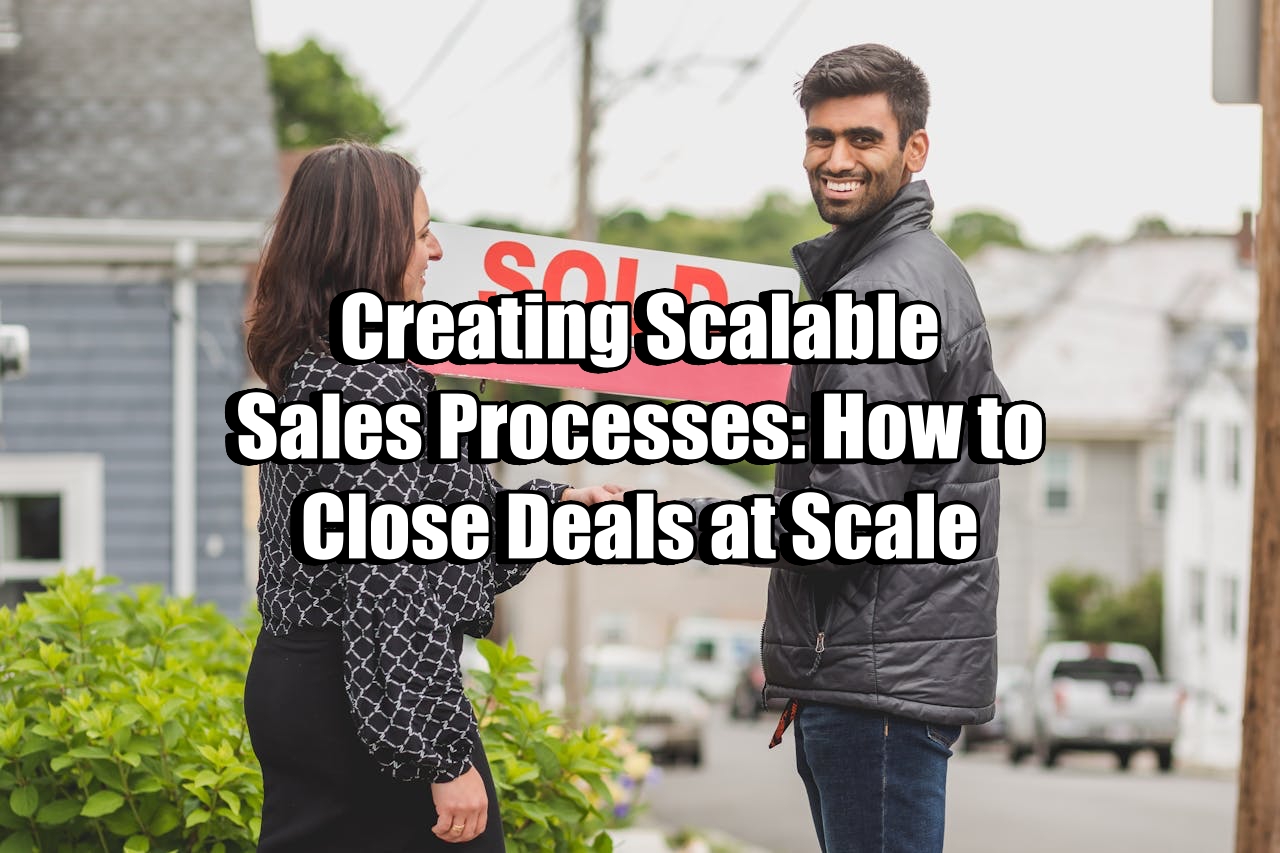Skip to content
Creating Scalable Sales Processes: How to Close Deals at Scale
Scaling your sales process isn’t just about hiring more reps—it’s about building a system that grows efficiently with your business. Whether you’re a startup ready to scale or a mature company looking to improve consistency, creating a scalable sales process is key to predictable growth.
Here’s how to design and implement a process that closes deals at scale:
1. Define Your Ideal Customer Profile (ICP)
Scaling starts with clarity. Narrow your focus to prospects who are the best fit based on industry, company size, pain points, and budget. An accurate ICP ensures your team spends time on leads most likely to convert.
2. Standardize the Sales Stages
Break down your sales funnel into clear, repeatable stages (e.g., lead qualification → discovery call → proposal → negotiation → close). Each stage should have defined entry/exit criteria and aligned activities.
Tip: Use CRM tools like HubSpot, Salesforce, or Pipedrive to automate stage transitions and maintain visibility.
3. Build Playbooks and Templates
Equip your team with ready-to-use email templates, call scripts, objection-handling guides, and demo flows. Sales playbooks promote consistency across reps and reduce ramp-up time for new hires.
4. Implement Lead Scoring
Not all leads are created equal. Use lead scoring models based on behavior (email opens, demo requests) and demographics (job title, company size) to prioritize follow-up efforts.
Pro tip: Automate scoring in your CRM to trigger personalized outreach at the right time.
5. Invest in Automation and Tools
To scale, automate what doesn’t require human touch. This includes:
-
Email sequences and follow-ups
-
Lead routing
-
Proposal generation
-
Contract management
Tools like Outreach, Apollo, and PandaDoc can help reps focus on closing rather than admin.
6. Measure and Optimize Relentlessly
Track key metrics like:
-
Conversion rates per stage
-
Sales cycle length
-
Win/loss reasons
-
Rep performance
Use this data to refine scripts, adjust pricing, or tweak ICPs. What gets measured can be scaled.
7. Align with Marketing and Customer Success
Sales doesn’t operate in isolation. Sync with marketing to ensure lead quality, and loop in customer success to support post-sale retention and upsells. A truly scalable process spans the full customer lifecycle.
Final Thought
Scalability isn’t about working harder—it’s about working smarter, systematizing what works, and continually optimizing based on results. When your sales engine runs on repeatable processes and clear data, closing more deals becomes not only possible—but predictable.

No responses yet